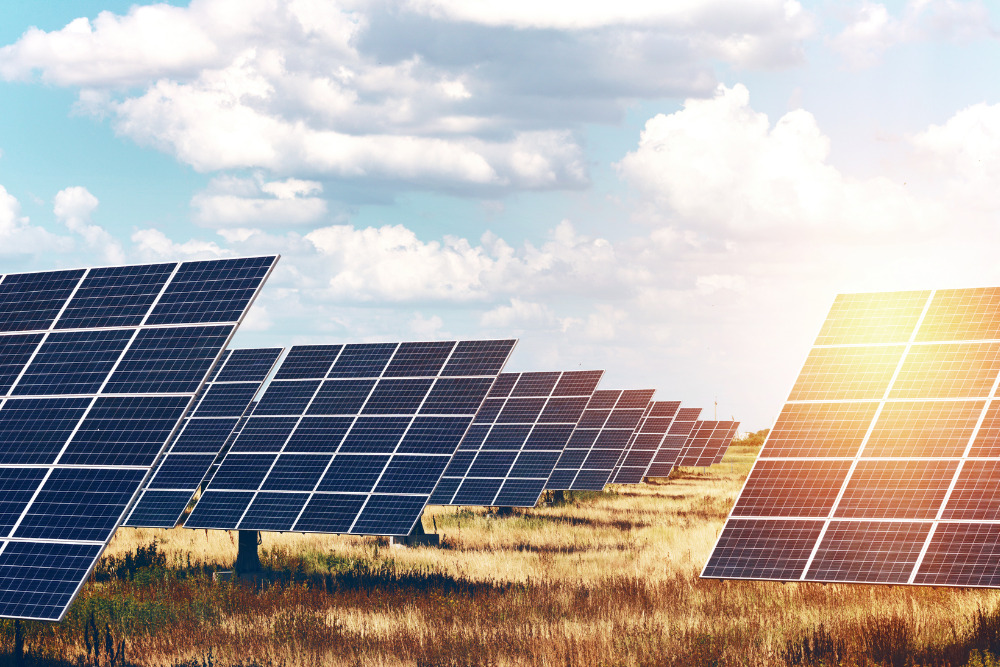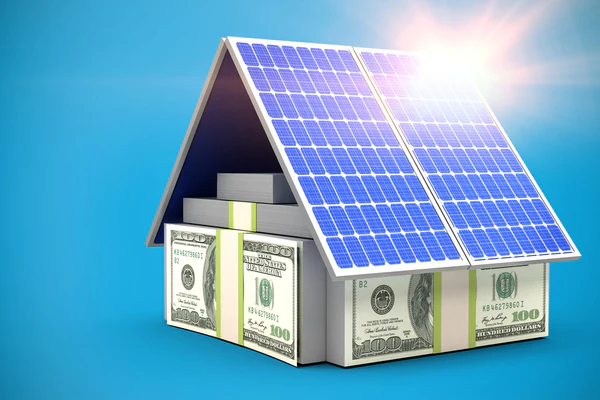Exactly How Solar Energy Can Help You Save Money and Minimize Your Carbon Impact
The assimilation of solar energy right into your power profile offers a compelling opportunity for both monetary savings and environmental stewardship. By taking advantage of the sunlight's power, house owners can substantially minimize their regular monthly utility expenses while also safeguarding against the changability of future energy expenses. The change to solar adds to a significant reduction in carbon emissions, straightening individual financing with wider environmental goals. As numerous government incentives appear, the question occurs: how can one effectively browse the preliminary financial investments and recurring advantages of solar modern technology to optimize both economic and ecological gains?
Recognizing Solar Energy Cost Savings
While the change to solar power usually involves a preliminary investment, recognizing solar power cost savings is critical for property owners and services alike. Solar power systems can dramatically minimize power bills by utilizing the sunlight's power, translating right into significant lasting financial advantages. By creating their very own electricity, users reduce reliance on grid power, which goes through rising and fall prices. These cost savings can collect with time, often resulting in a rapid return on investment.
Additionally, solar power systems may certify for different monetary rewards, including tax obligation credit reports and rebates, even more enhancing their cost-effectiveness. The schedule of internet metering enables users to market excess energy back to the grid, creating an added earnings stream. These aspects add to the total savings associated with solar power.

Along with guide financial financial savings, solar energy offers the added benefit of increasing residential property worth. Residences outfitted with photovoltaic panels are often more attractive to buyers, as they guarantee lower energy costs - Simply Solar Illinois. Understanding these elements is essential for any person considering solar power, as it highlights not simply the prospective monetary gains, however also the wider environmental and financial benefits of embracing sustainable energy options
First Costs vs. Long-Term Perks
When examining solar power, it is important to weigh the preliminary prices versus the lasting benefits. The ahead of time financial investment for photovoltaic panels, setup, and related tools can be considerable, typically varying from $15,000 to $30,000, depending upon the system size and home power requirements. This initial expense might prevent some property owners; nonetheless, it is vital to think about the potential financial savings gradually.
When installed, solar energy systems can considerably lower and even eliminate month-to-month electrical energy costs, resulting in significant long-lasting economic advantages. Studies show that home owners can save anywhere from $10,000 to $30,000 over the life-span of their solar system, typically 25 years. In addition, many states use incentives, tax debts, and refunds that can balance out initial costs, making solar a lot more accessible.

Minimizing Your Carbon Footprint
Reducing your carbon footprint is a critical factor to consider in today's environmentally mindful culture, and adopting solar energy is just one of the most reliable strategies to accomplish this objective. Solar energy is a tidy, renewable resource that dramatically decreases dependence on nonrenewable fuel a knockout post sources, which are major contributors to greenhouse gas exhausts.

Additionally, the widespread fostering of solar technology motivates the development of eco-friendly jobs and sustains advancements in energy storage and performance. The more people and organizations purchase solar energy, the greater the collective decrease in carbon emissions, cultivating a cleaner ambience for future generations.
Government Rewards and Rebates
Taking on solar power not only profits the atmosphere but can likewise bring about significant monetary cost savings, particularly with the accessibility of federal government incentives and refunds. Numerous federal, state, and local programs are created to encourage home owners and services to buy solar power systems, making the transition a lot more budget friendly.
Among one of the most famous rewards is the Federal Financial Investment Tax Obligation Credit Rating (ITC), which enables planetary system owners to deduct a substantial percent of the installment prices from their federal taxes. This reward has actually been crucial in reducing the upfront expenses connected with solar power official source systems. Additionally, numerous states provide their own tax credit scores, gives, and rebates that can even more enhance cost savings.
Additionally, some city governments offer residential or commercial property tax exemptions for solar installations, ensuring that homeowners do not encounter raised residential or commercial property tax obligations as a result of their renewable energy investments. Energy business might additionally use rewards, including internet metering and feed-in tolls, which enable solar energy individuals to offer excess power back to the grid.
Choosing the Right Planetary System
Choosing the suitable planetary system is critical for taking full advantage of power effectiveness and monetary benefits. The choice depends upon a number of elements, including power demands, budget plan, and readily available area. Home owners must begin by assessing their power consumption to establish the system size required for optimal efficiency.
Following, think about the different kinds of solar technologies readily available. Simply Solar Illinois. Photovoltaic Or Pv (PV) panels are the most usual, converting sunshine straight into power, while solar thermal systems concentrate on heating water. Each kind has distinct benefits relying on private needs
Spending plan considerations are additionally critical. First installation expenses can differ considerably, so it is essential to compare quotes from numerous companies and discover financing choices. Federal government rewards and rebates can even more minimize the economic burden, making solar systems extra accessible.
Conclusion
In recap, solar power directory offers a practical service for attaining significant cost savings while all at once minimizing carbon emissions. The initial investment, though considerable, returns considerable long-term financial benefits, with possible cost savings varying from $10,000 to $30,000 over 25 years. The environmental advantages of solar energy contribute to lasting techniques crucial for combating climate change. Federal government motivations boost the feasibility of solar innovation adoption, encouraging a transition in the direction of a cleaner, extra financially effective power resource.